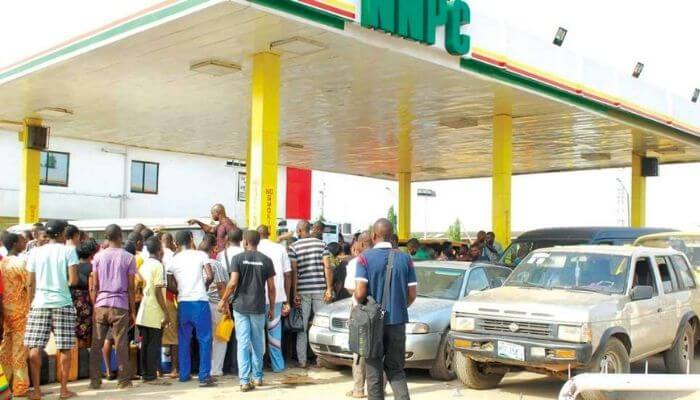Queue for petrol were noticeable in major cities across the country as motorists groan over the price they have to pay to get the scarce commodity. Major and independent marketers are not selling the product and the few opened for business have adjusted their pump price between N800 and N1,000, aggravating the already precarious situation.As the scarcity persists, NNPCL said the long queues across Nigeria resulted from disruption of the ship-to-ship loading of petrol caused by “a recent thunderstorm.”Black petrol marketers, especially roadside fuel hawkers, were having a field day, with a 4-litre gallon selling for between N 5,000 and N6,000.
Some motorists expressed dismay, saying the “obnoxious situation has negatively affected our activities.”
In Kaduna state a civil servant, Salisu Baso, lamented that he had to pay double the transport fare he was hitherto paying to reach his office at the Federal Secretariat, Kawo-Kaduna.
Mr. Baso said: “We don’t even know who is right now. Is it the government or the marketers? It is very unfortunate that they are just passing the buck. But, in whatever case, an urgent action should be taken to redress the ugly situation that is jeopardising socio-economic activities in the country.”
Francisca Idika, a trader at the Chechnya market in Kaduna, said the lingering petrol scarcity and the soaring prices have badly affected their businesses.
Ms. Idika said,” I have to pay more now to reach the market and we just have to increase the prices of our wares to break even.”
Reports from Kano and Katsina revealed a similar disheartening situation of higher prices and endless queues in the few filling stations operating.
Alao Jaremi, an IT expert in Katsina, called on the authorities concerned to take urgent measures to ensure the availability of petrol across the country.
” We need the government to swing into action and do the needful to alleviate the suffering of the hapless Nigerians,” Ibrahim Dan-Musa said in Kano.
The national oil company said that adverse weather conditions had also affected berthing at jetties and truck load-outs transportation of products to filling stations, causing a disruption in station supply logistics.
The marketers, however, maintained that they could not access the NNPCCL portal to place orders for the commodity. NAN


